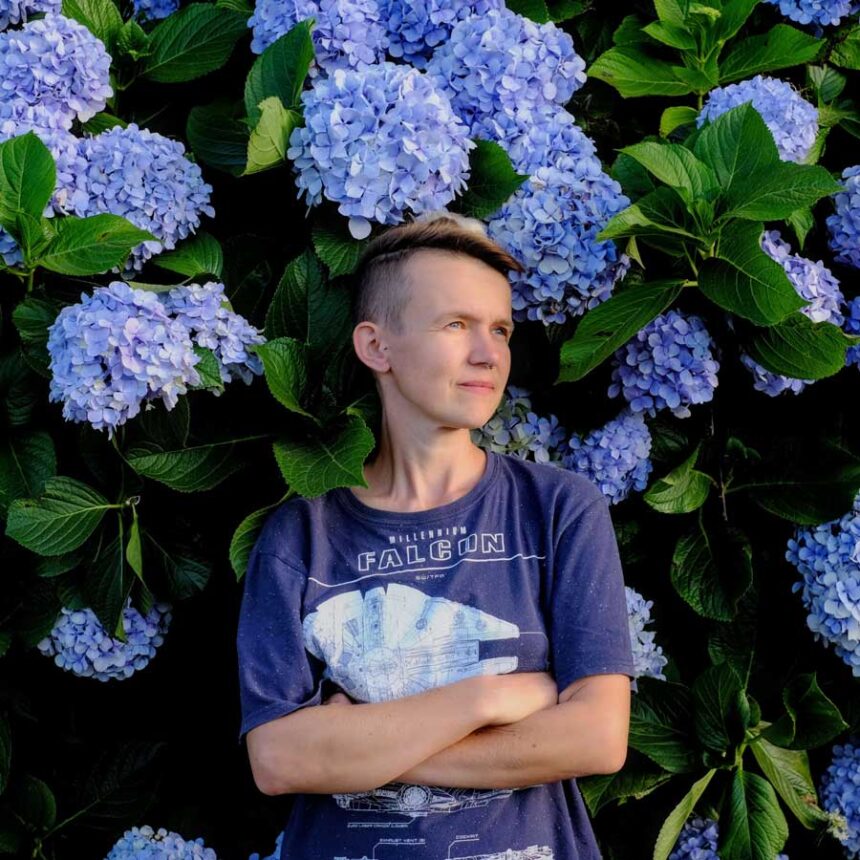
-
WHEN AND WHERE?
- 11 October 2025 (Saturday)
- Time: 12:00
- duration: 60 min.
- The Marek Edelman Dialogue Center, st. Wojska Polskiego 83
-
ADMISSION
- Free entry
JAKUBOWSKA AND SCHNEIDER – THE STORY OF A PARTNERSHIP
Center for good debate
What is it about?
The meeting “Jakubowska and Schneider – the story of a collaboration” is a tale of the extraordinary and almost forgotten relationship between two artists: Łódź-based director Wanda Jakubowska and German screenwriter Gerda Schneider. Together, they survived the camps of Birkenau, Ravensbrück, and Rajska, and after the war, they attempted to create the first feature film in the history of cinema about a concentration camp. Their fates—intertwined by their camp experiences and later separated by post-war history—reveal not only personal drama, but also a broader political and cultural context.
Lecture by Dr. Joanna Ostrowska, author of the book Ślady. Historia pewnego archiwum (published by Krytyka Polityczna), will allow us to reconstruct the untold story of Jakubowska and Schneider’s collaboration. The lecture will discuss how, under camp conditions, a film project was born, resulting in “Ostatni etap” – the first fictional testimony to the Holocaust in the history of cinema. Participants will learn about the biographies of both women—one controversial, the other almost completely forgotten—and find out what their lives were like together and separately, in Poland and Germany.
By whom?
Joanna Ostrowska – Doctor of Humanities in History, she also studied at the Institute of Audiovisual Arts at the Jagiellonian University, the Department of Jewish Studies at the Jagiellonian University, Gender Studies at the University of Warsaw, the Department of Hebrew Studies at the University of Warsaw, and the PWSFTviT in Łódź. She is an academic lecturer, film critic, and playwright. She deals with issues related to sexual violence during World War II and the forgotten victims of Nazism. She is the author of the widely discussed book Przemilczane. Seksualna praca przymusowa w czasie II wojny światowej (The Silenced: Sexual Forced Labor During World War II) (2018), for which she received the Mauthausen-Memorial-Forschungspreis award, and Oni. Homoseksualiści w czasie II wojny światowej (They: Homosexuals During World War II) (2021), which won the Nike Readers’ Award.
Who is it for?
The meeting is aimed at adults and young people interested in the history of cinema, World War II, the memory of the Holocaust, and the role of women in the creation of culture. It will be of particular interest to film history enthusiasts, researchers of memory culture, and those involved in camp-related topics and the social history of the 20th century.
Why is it worth it?
This event rediscovers a story that has remained in the shadows for decades. It shows how two women, one Polish and one German, elevated their camp experiences to the level of artistic and political testimony. It is also a reflection on memory, forgetting, and the significance of women in cultural history, as well as an opportunity for critical reflection on why some biographies remain in the spotlight while others fade into silence.
Availability
The Dialogue Center building is accessible for people with mobility impairments. It features wide, non-automatic entrance doors without thresholds and an accessible restroom. The auditorium is located on the ground floor, has a ramp, and includes designated spaces for wheelchair users. In front of the building, there is a large parking lot with marked spaces for people with disabilities. Assistance dogs and guide dogs are welcome in both the building and the auditorium.
Parking entrance from Wojska Polskiego Street.
Nearby bus and tram stops: Wojska Polskiego/Centrum Dialogu, Wojska Polskiego/Sporna.
Photos
Dr Joanna Ostrowska, Fot. Andrzej Lasocki